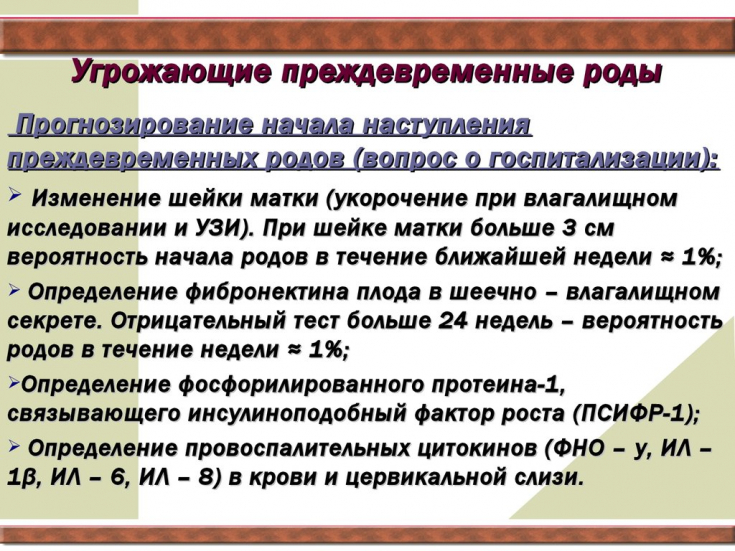Miscarriage occurs in one in five pregnant women and is one of the most common pregnancy complications.
Preterm birth, which occurs in about 7% of women giving birth, is the largest cause of neonatal complications and death. Both miscarriage and preterm birth significantly affect the physical and psychological well-being of future parents and have serious consequences for them.
Find out in the article on estet-portal.com if there are risks of preterm birth with thyroid pathology.
- The impact of thyroid diseases on the development of preterm labor
- Preterm birth and ATPE rates
- The feasibility of hormone therapy in the risk of developing preterm birth
Influence of thyroid diseases on the development of preterm labor
The study by American scientist Alex Stagnaro-Green was the first to demonstrate an association between increased levels of antibodies to thyroperoxidase (ATPO) and an increase in the incidence of preterm birth.
Follow us on Instagram!
The aim of the study was to evaluate the incidence and causes of postpartum thyroiditis. Summarizing the data of 552 women, the researcher found that a high level of ATPO of the thyroid gland is a marker in pregnancy, which can be classified as a risk group compared to pregnant women without elevated ATPO values.
Preterm birth and ATPE rates
Several years later, Belgian scientists conducted a study to evaluate whether there was an increased risk of developing subclinical hypothyroidism (SH) during pregnancy in women with autoimmune thyroiditis (AIT), and to investigate whether mild thyroid dysfunction could lead to to undesirable consequences in obstetrics, in particular, premature birth.
The study reported that preterm births are more common in women with high rates of ATPO compared with those without AIT.
Small randomized controlled trials and several meta-analyses have confirmed that AIT and FH are strongly associated with the risk of miscarriage and preterm birth, suggesting that treatment with levothyroxine may reduce these risks.
Risk factors and modern methods of preventing the development of postpartum depression

The decisive answer to this controversial question was recently obtained in a double-blind placebo-controlled study «TABLET» (Thyroid AntiBodies and LEvoThyroxine study − study of antibodies to thyroperoxidase and levothyroxine), which was conducted by British scientists to investigate whether treatment with levothyroxine will increase live birth rates after 34 weeks of pregnancy in women with euthyroidism and AIT who had a history of miscarriage or infertility. ; Or are preterm births more common in pregnant women with AIT compared to pregnant women without thyroid diseases ?
The feasibility of hormonal therapy in the risk of preterm birth
Women from 49 UK hospitals took part in the study. All women were between 16 and 40 years of age with a history of preterm birth or infertility within 12 months. Screening included a blood test for ATPO, thyroid stimulating hormone (TSH), and free thyroxine (T4). Participants were assigned to take 1 tablet (50 mcg) of levothyroxine or placebo daily before conception. During pregnancy, women had three visits to the doctor: at 6-8 weeks, 16-18 weeks and 28 weeks. A total of 476 women were treated with levothyroxine and 476 ? placebo.
Vegetarianism during pregnancy: recommendations from nutrition experts
56.6% in the levothyroxine-treated group and 58.3% in the placebo group became pregnant, and fertility rates were similar between the two groups (37.4 and 37.9%). Also, there were no differences in the frequency of preterm birth, miscarriage and other adverse effects in mothers and newborns in both groups. Thus, the use of levothyroxine in women with elevated ATPO and euthyroidism did NOT result in higher live birth rates than placebo.

Thus, the British study rejected the recommended benefits of hormone replacement therapy in pregnant women with chronic AIT and euthyroidism. These results confirmed the findings of another recent Chinese study of 600 women who were in vitro fertilized, half of whom were taking levothyroxine. According to the results of the study, scientists found no benefits and better performance in women who received hormone replacement therapy.
Modern approaches to the prevention of preterm birth
The American Thyroid Association guidelines state that there is not enough evidence to definitively determine whether levothyroxine therapy reduces the risk of pregnancy loss and preterm birth.

However, since one study has shown that women with AIT are prone to developing hypothyroidism during pregnancy and elevated TSH concentrations can lead to pregnancy loss, it is reasonable to monitor and treat these patients if the TSH level exceeds 4.0 mmol /l.
Studies show that pre-pregnancy treatment of women with AIT with levothyroxine does not increase fertility or affect the intelligence of children in the future. This finding supports a conservative approach in working with women of childbearing age at the onset of pregnancy.
Urinary tract infections during pregnancy: evidence-based medicine









Add a comment